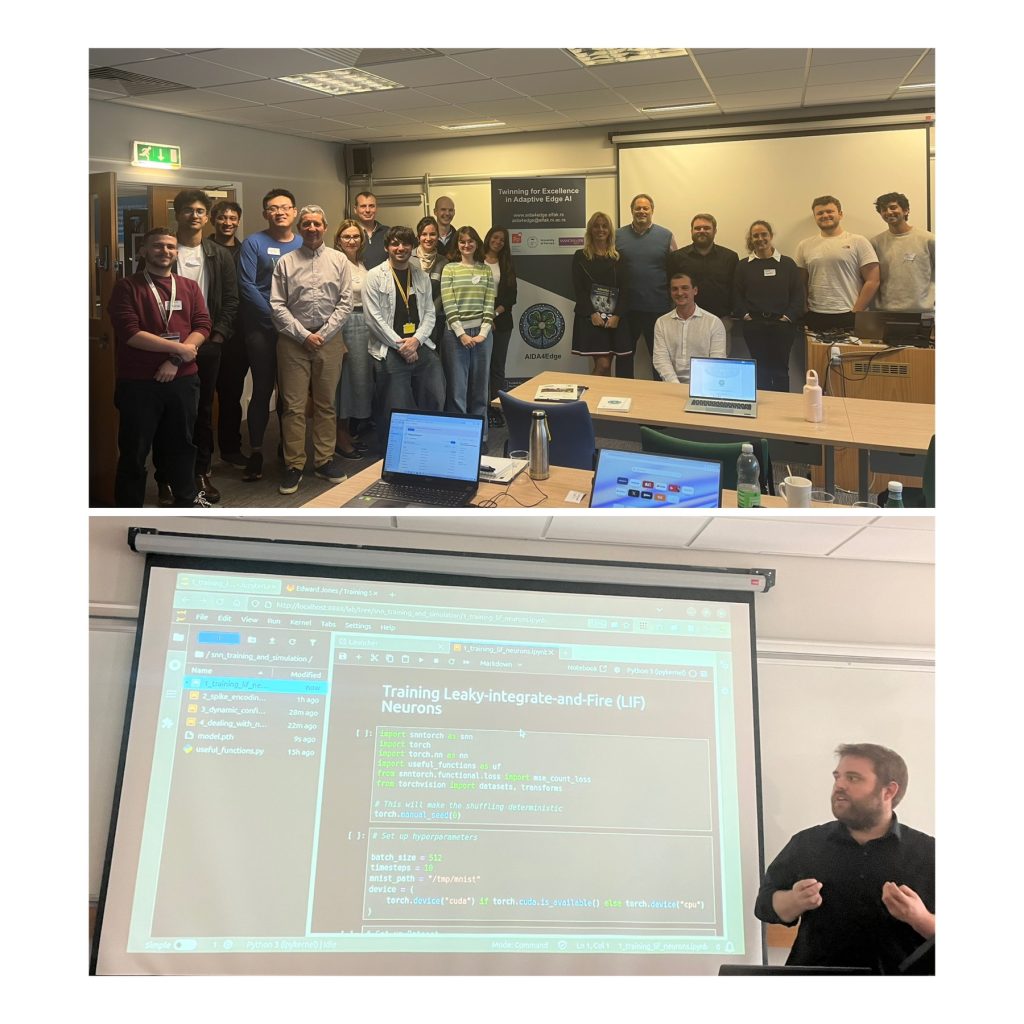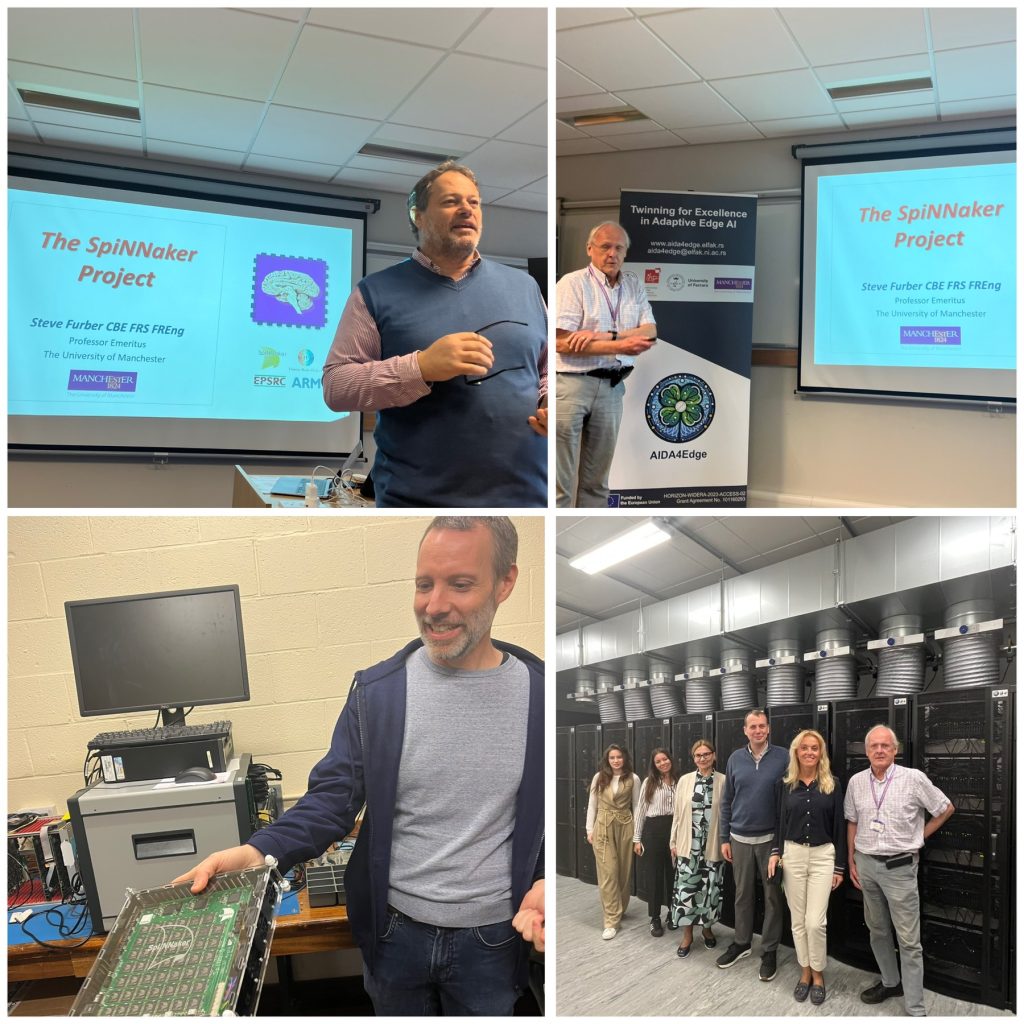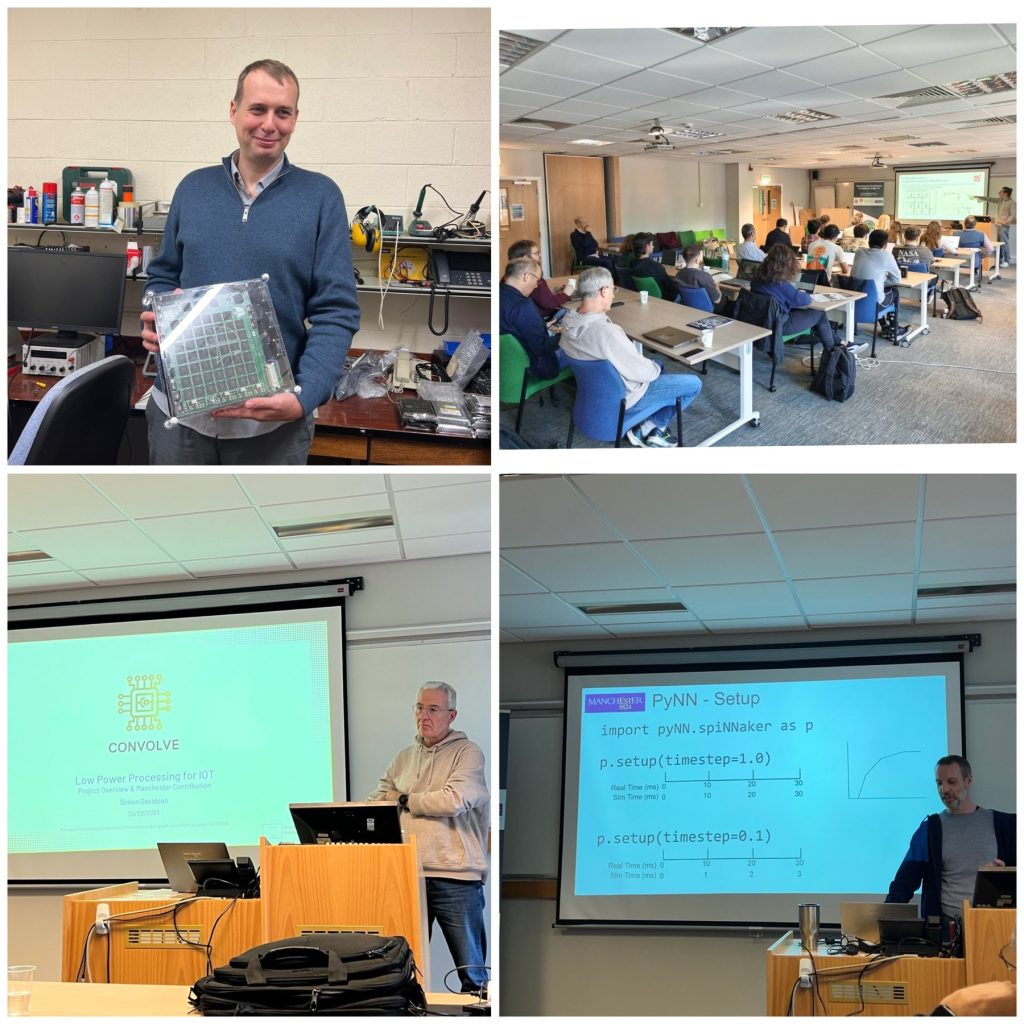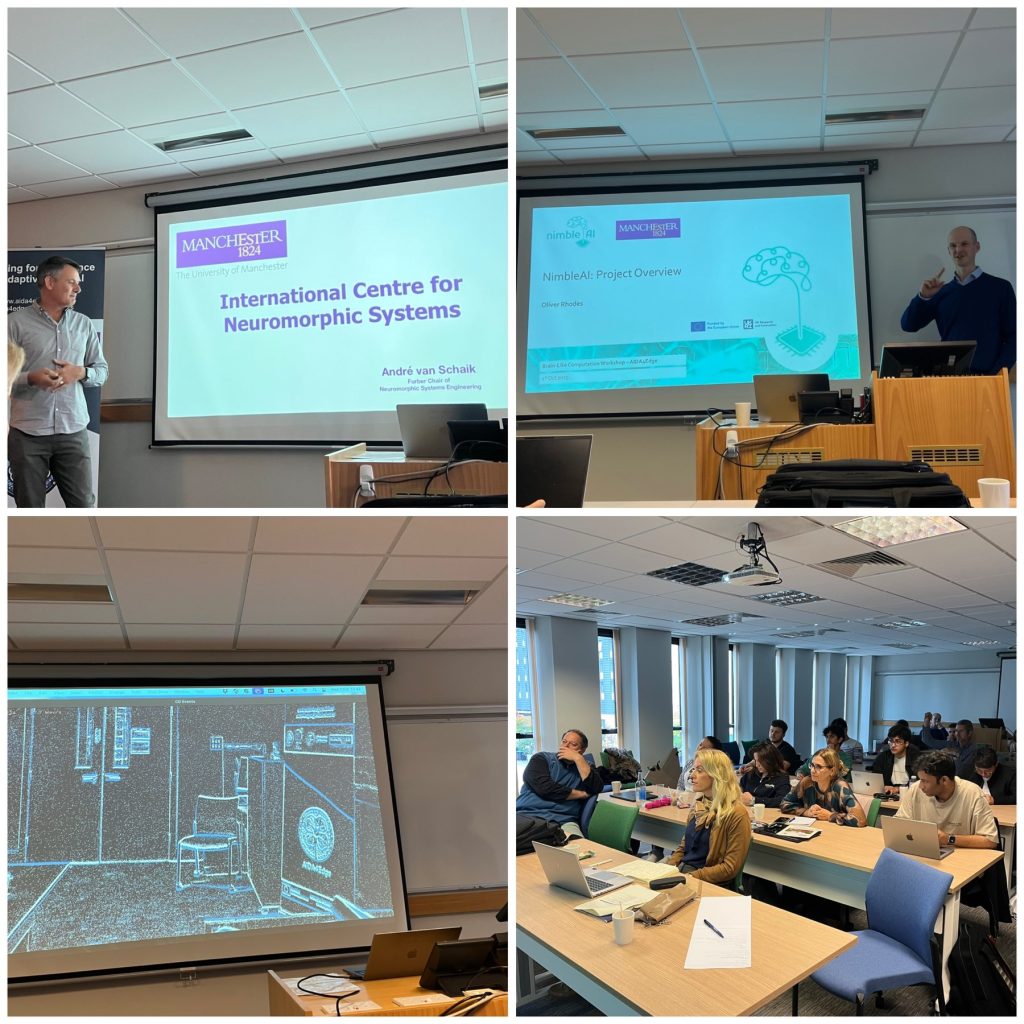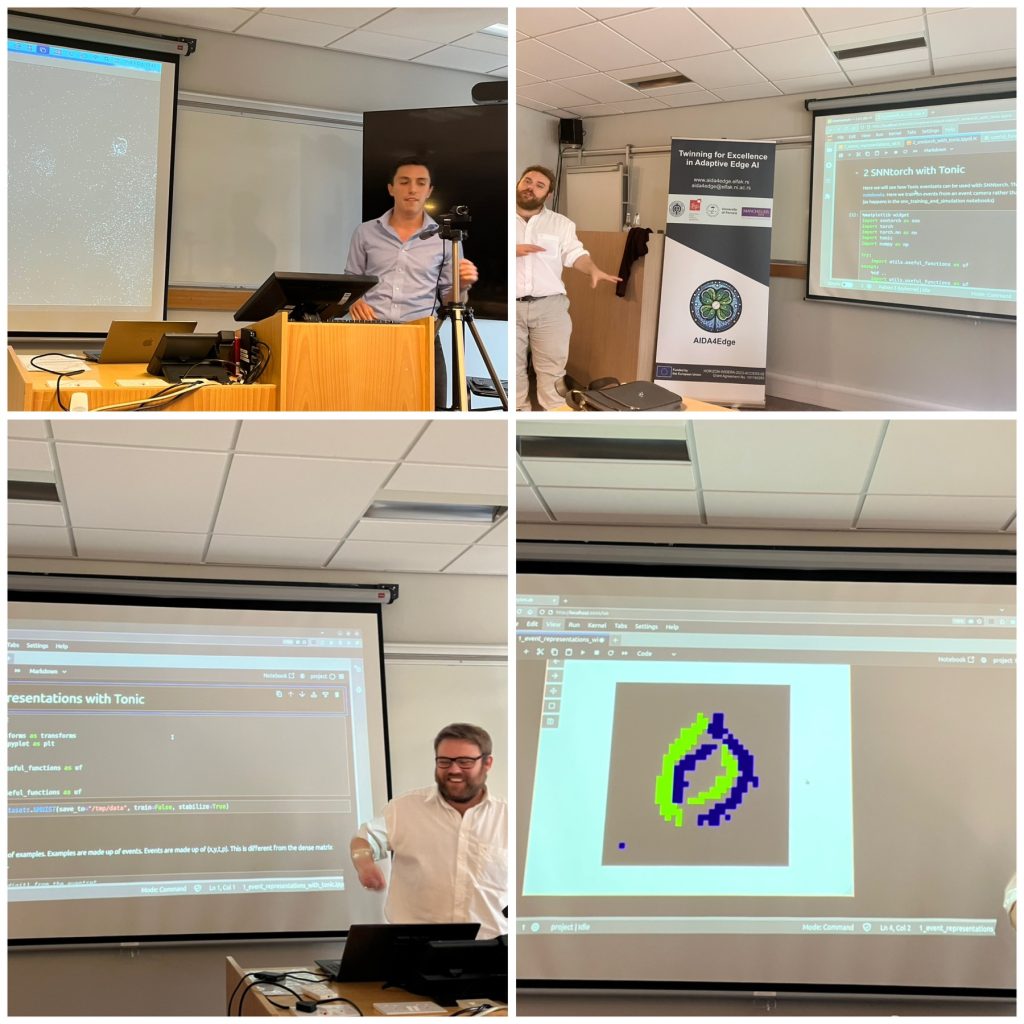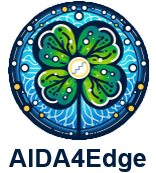From September 29 to October 1, 2025, the Faculty of Electronic Engineering team from the University of Niš had the pleasure of attending the 1st AIDA4Edge training school, held in the ATLAS room of the Kilburn Building, University of Manchester.
The training school, titled “Brain-Like Computations: Hands-on Exploration of Spiking Neural Models and Platforms,” was thoughtfully designed and flawlessly organized by our partners from the University of Manchester – Davide Bertozzi, Oliver Rhodes, and Edward Jones.
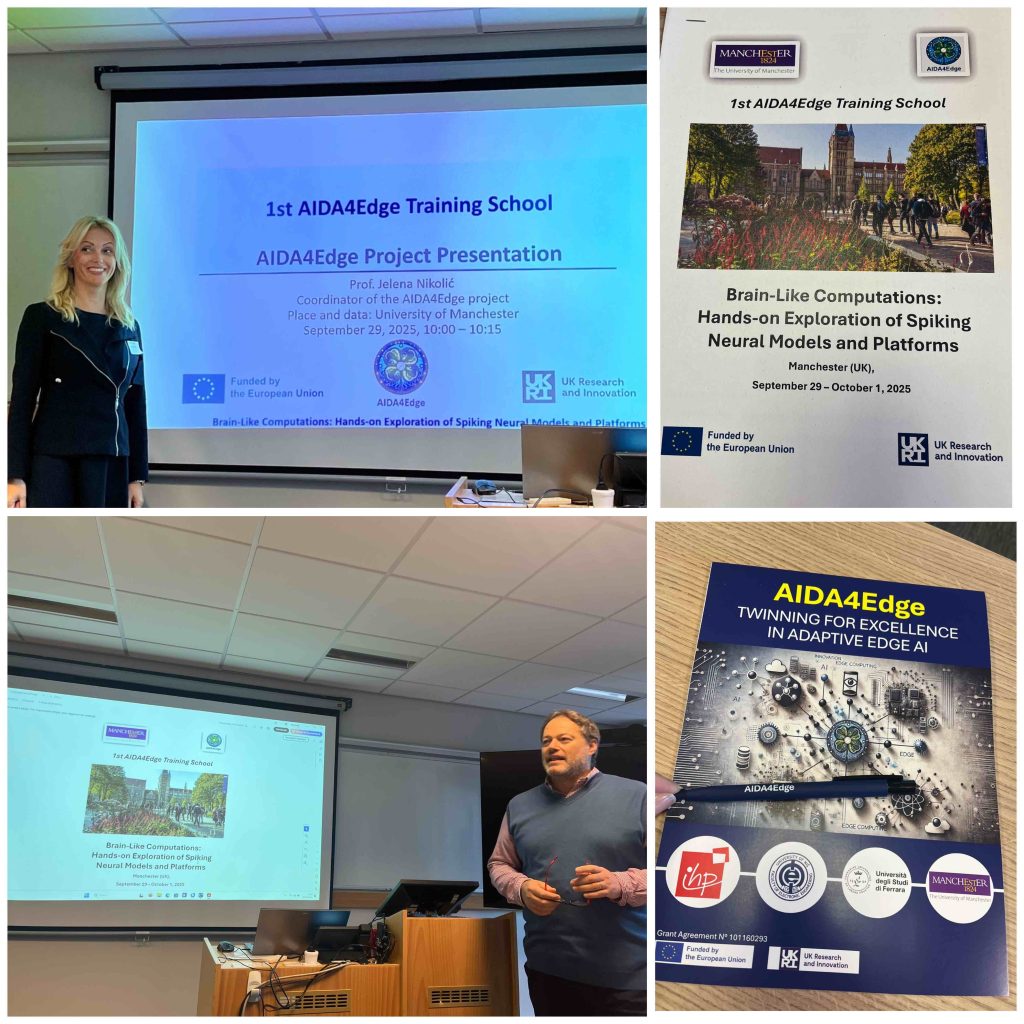
The first day started with a presentation of the AIDA4Edge project delivered by the project coordinator, Prof. Jelena Nikolić. The subsequent sessions were dedicated to exploring spiking neural networks (SNNs) across the stack, from theoretical models and simulations to software tools and hardware platforms. Edward Jones introduced the principles of neuromorphic computing, Oliver Rhodes presented tools for SNN simulation, and Davide Bertozzi discussed neuromorphic hardware platforms for SNN implementation. The day concluded with detailed hands-on training and simulation exercises led by Edward Jones.
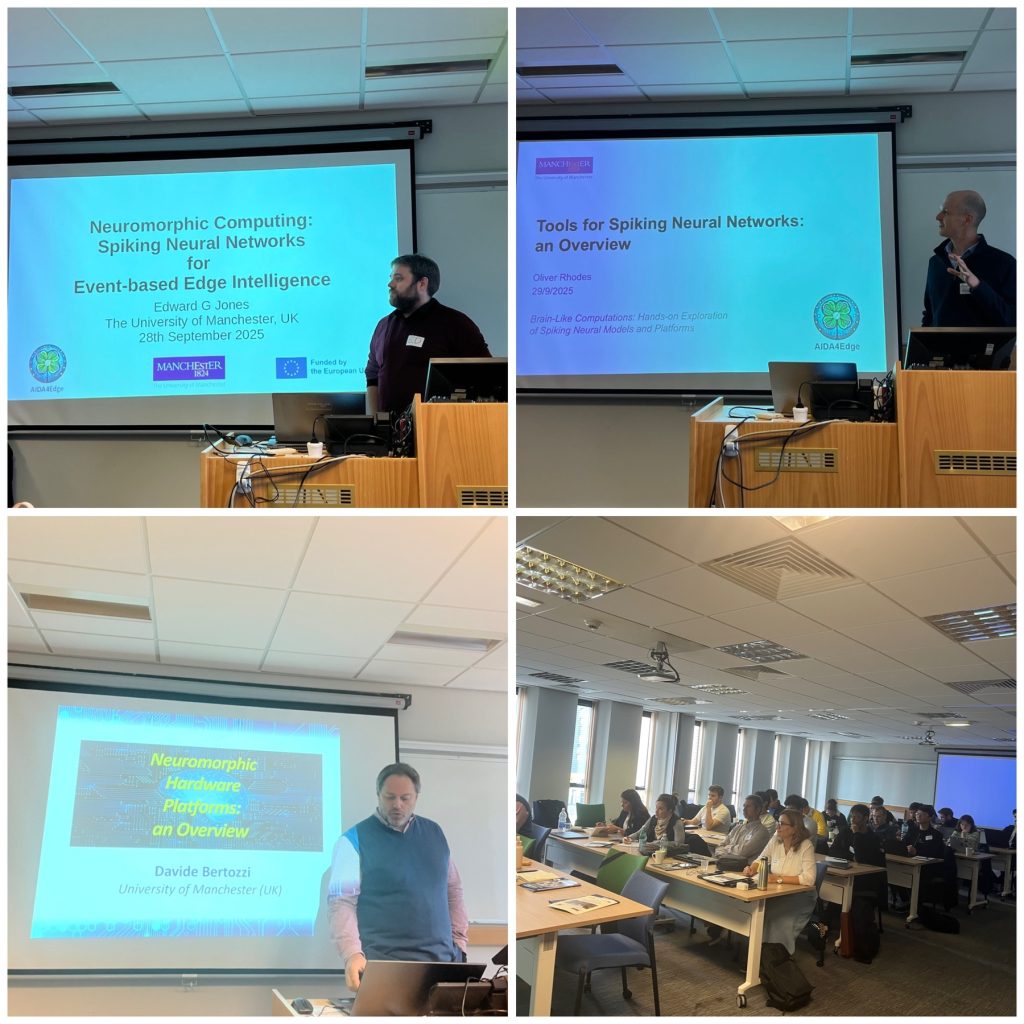
On the following day, we thoroughly enjoyed a rich and well-balanced program that combined inspiring lectures with engaging practical sessions. It was a special privilege to attend the lecture by Professor Steve Furber, principal designer of the SpiNNaker large-scale neuromorphic supercomputer at the University of Manchester. His talk on the origins, vision, and groundbreaking capabilities of the SpiNNaker system was both insightful and inspiring, and our visit to this remarkable machine further deepened the impression. We have also learned about innovations in AI processing architectures presented by Markus Ulbricht from the IHP. Simon Davidson shared insights from the EU-funded CONVOLVE project, highlighting advances in low-power processing for IoT, while Andrew Rowley provided step-by-step guidance on implementing SNNs on the SpiNNaker platform through comprehensive hands-on tutorials.
The final day opened with a captivating presentation by André Van Schalk on applications of event-based vision, followed by an equally fascinating talk by Oliver Rhodes about the Nimble AI project. Luca Peres then demonstrated paths towards a high resolution multimodal neuromorphic event set. The training school concluded with hands-on activities on dynamic vision sensing, organized by Edward Jones, whose exceptional expertise and dedication greatly contributed to the overall success and inspiring atmosphere of the training school.
Finally, we would like to express our sincere gratitude to our partners from the University of Manchester for carefully preparing the program, their willingness to share extensive knowledge, and their warm hospitality, which made this training school a truly memorable and enriching experience.
